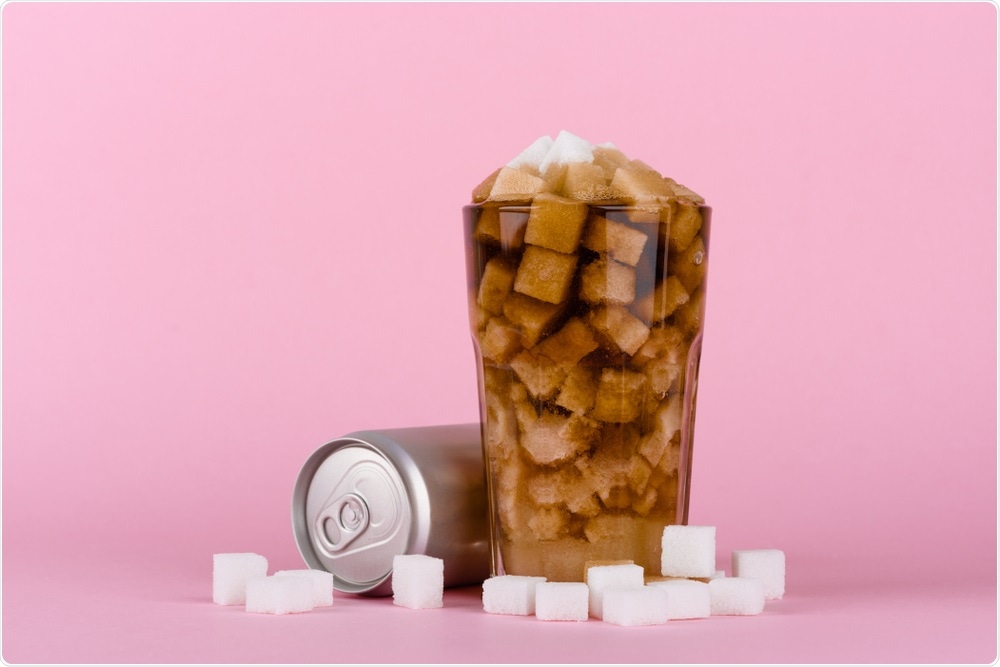Sugar consumption is linked with larger fat deposits around the heart and in the abdomen, which is risky for health. That is the finding of a study published today in the European Journal of Preventive Cardiology, a journal of the European Society of Cardiology (ESC).

Image Credit: Nevodka/Shutterstock.com
When we consume too much sugar the excess is converted to fat and stored. This fat tissue located around the heart and in the abdomen releases chemicals into the body which can be harmful to health. Our results support limiting added sugar intake."
Ms. So Yun Yi, University of Minnesota School of Public Health
Excess sugar consumption is a worldwide problem. The six countries with the highest sales of sugary drinks per capita are Chile, Mexico, Argentina, Peru, the US, and Saudi Arabia. The demand for sugar is expected to increase in Asia, Africa, and Russia.
This observational study examined both sugar-sweetened beverages (such as soft drinks, fruit drinks, energy drinks) and sugar added to foods and beverages for sweetness (for example when cooking or in processed foods). The researchers analyzed the association between long-term sugar consumption and fat stores around the heart and other organs.
Data were obtained from Coronary Artery Risk Development in Young Adults (CARDIA), an ongoing cohort study in the US that includes centers in Alabama, California, Illinois, and Minnesota. A total of 3,070 healthy participants aged 18 to 30 were included in this study.
Food and beverage intakes were measured three times over a 20-year period (1985 to 2005). After 25 years (in 2010) computed tomography (CT) scans of the chest and abdomen were performed to measure fat volumes in the abdomen and around the heart.
The researchers found that sugar intake over the 20-year period was related to fat volumes later in life. Higher intakes of both sugar-sweetened beverages and added sugar were related to greater fat stores around organs in a stepwise fashion.
"Our findings provide more evidence that consuming too much added sugar and sugary drinks is related to a higher amount of fat tissue," said study author Dr. Lyn Steffen of the University of Minnesota School of Public Health. "And, we know that fat deposits are connected with higher risks of heart disease and diabetes."
She advised reducing the amount of added sugar consumed each day. "Have water instead of sugary drinks and choose healthier snacks over foods rich in added sugar like cakes," she said.
"Read food labels to check the amount of added sugar in what you are buying. Look for ingredients like syrups, glucose, fructose, sucrose, and maltose. Being more aware of hidden sugar will help you cut back."
On top of our individual efforts, governments, food manufacturers, restaurants, schools, and workplaces have a role to play in increasing consumer awareness of the sugar content in foods and beverages and offering healthier alternatives."
Dr. Steffen
Journal reference:
- 1Yi SY, Steffen LM, Terry JG, et al. Added sugar intake is associated with pericardial adipose tissue volume. Eur J Prev Cardiol. 2020. doi:10.1177/2047487320931303.